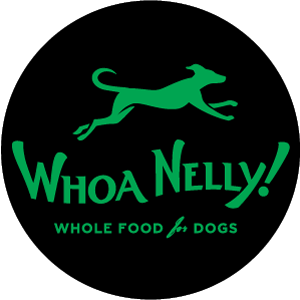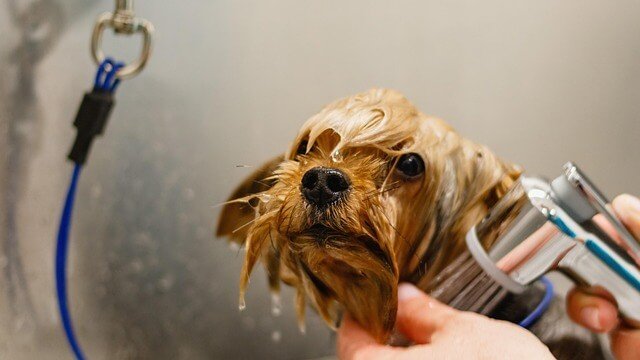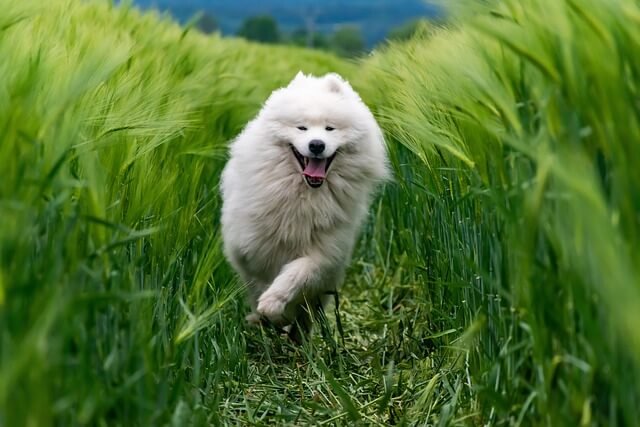How To Naturally Express Your Dogs Anal Glands
In This Article
If your dogs has issues with their anal glands, the solution is not to get their glands expressed.
Manually expressing healthy anal glands can cause long term trauma, which often results in inflammation, infection and reoccurring health problems.
The reality is that healthy anal glands express themselves. If your dog has glands that are not doing that, there is an underlying issue which needs addressing.
The great news is that this a common issue that can be easily resolved!
What are anal glands?
Dogs have two glands that sit like nipples on either side of their anus. The glands produce an oily scent that is added to their poo. The scent is used to mark territory and communicate with other dogs.
They are the reason that dogs sniff each others butts!
The glands work by emptying from the pressure of passing a stool. If your dog makes healthy firm poos their glands will naturally express.
However if your dog makes sloppy, watery or loose stools then the glands will be unable to naturally release themselves. Instead, the oily substance in the glands builds up as it thickens. This can result in irritation, inflammation and an infection in their bum. Gross 🤢
The main symptom is dragging their bum across the carpet or grass. If your dog is doing a lot of that they may have itchy or inflamed anal glands.
What causes anal gland issues?
The most common cause of anal gland issues is gut inflammation and soft poos. Which is why this is almost exclusively an issue with dogs fed processed dry food. Even the expensive kibble causes anal gland issues. The problem is the with make up of the food itself.
There are three main causes of anal gland issues in dogs:
Diet
Gland trauma
Gland location
How diet impacts glands
Kibble is different from raw food both in ingredients and in processing. Dry food almost always contains low quality ingredients (even the “premium” brands), and the high temperature processing results in low digestibility and an increase in the water content of stools.
Ultimately this means that kibble fed dogs produce poos that are not firm enough to naturally express the anal glands.
Kibble manufacturers try to combat this with ingredients like beet pulp to “bulk up” the poo. This is like having a vitamin supplement with your Big Mac - it’s probably not going to work.
Dogs eating a high quality raw diet produce healthy firm poos. Invariably this means they do not have issues with their anal glands or need them to be manually expressed. Eating a biologically appropriate diet keeps the anal glands healthy and functioning normally.
Anal gland trauma is common
Many dogs have their anal glands expressed regularly as part of their grooming or vet check up. This is not a natural procedure and can be quite unpleasant for your dog (can you imagine 😳).
Keep in mind that the glands are designed to empty themselves naturally through healthy bowel movements. Pinching or squeezing the glands can cause tissue damage and swelling. This obstructs natural function and the oily secretion thickens and becomes impacted.
Avoid expressing your dogs glands unless absolutely necessary.
Dogs start out with perfectly functioning glands. If they are damaged it becomes a much more difficult problem to solve.
Effect of anal gland position
In rare cases, there is a structural problem causing problems. Typically this means that the glands are located deep inside the rectum. Because they are not placed correctly even healthy stools do not adequately express the gland.
This can be corrected by surgery - but please keep in mind this is very rare. In most cases the issue is dietary.
If your dog is having difficulty naturally expressing their anal glands it is absolutely crucial to first improve their diet before looking to surgical or supplemental solutions.
Why conventional treatment is wrong
According to PetMD the solution is to add fibre to promote firm stools. This is completely the wrong way around. Adding fibre to a processed diet instead of fixing the diet is crazy.
Maybe just don’t feed processed junk food?
Instead of supplementing a low quality processed diet with fibre, feeding a high quality biologically appropriate raw diet will naturally produce healthy poos. Because the poos are healthy.
A good diet is all you need. The goal is to let your dogs body look after itself.
How to prevent anal gland issues
If your dog is experiencing anal gland issues, the first step is to remove all inflammatory foods from the diet. This includes corn, potatoes, wheat, rice & soy. Keep in mind that kibble is inflammatory in nature. If you can, feeding a high quality raw diet is always the best for your dog’s health.
It’s important to remove any ingredients that may be causing a food allergy or sensitivity. This can be difficult to do without testing (which is expensive) so if you are unsure try to feed a simple diet that is based on a novel protein while your figure it out.
The next step is to balance the fat profile. The goal is to remove the inflammatory conditions that cause anal gland issues. Typically this means reducing the amount of Omega-6 fats, as they are pro-inflammatory without sufficient Omega-3 to provide balance. Ideally you are feeding a high quality raw food that has a Ω3 : Ω6 ratio of 1:3 (like Whoa Nelly). But if we are not available where you are adding sardines in spring water to their food can be helpful. But it really does depend on the composition of the current diet.
Like in most issues cause by the gut, adding probiotics & digestive enzymes can be beneficial. Adding a prebiotic fibre like slippery elm or marshmallow root can also be helpful.
If your dog is regularly experiencing sloppy poos you need to find the underlying cause. Stop feeding a processed kibble diet is the first and most important change you need to make. If that doesn’t work then it is time to see a good holistic vet 🐾







